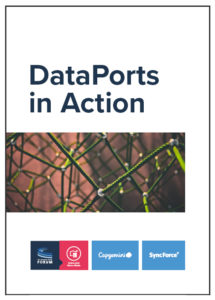
Managing and sharing product information across the entire value chain is still a fundamental challenge for the consumer goods and retail industry. The Board of The Consumer Good Forum (CGF) acknowledges the need to move urgently and at scale beyond current industry and organisational paradigms to drive a step-change forward via the Product Data Coalition of Action.
Most of the current initiatives have focused on managing and sharing product master data across the industry: (1) verifying GTINs globally, (2) defining and maintaining a core set of product attributes and (3) ensuring the best possible data quality via a consistent approach based on Data Quality Business Rules. In addition, there is a voluntary innovation track that has focused on new technologies to leapfrog data exchange (4) via DataPorts.
The potential value of data-sharing via DataPorts goes well beyond just the use-cases of product master-data sharing. For example, DataPorts are envisioned to enable a whole spectrum of data to be shared directly between large numbers of value chain partners, like forecasting data, transactional data, event data and sensor data.
In the 2019 CGF paper “DataPorts, Solving End-to-End Value Chain Content Integration”, the conceptual architecture and solution direction for this is described, successfully addressing the question: is there a durable way in which we can design and build an open-source technical framework for peer-to-peer content integration for value chain partners, in full support of current and future industry and open standards?
